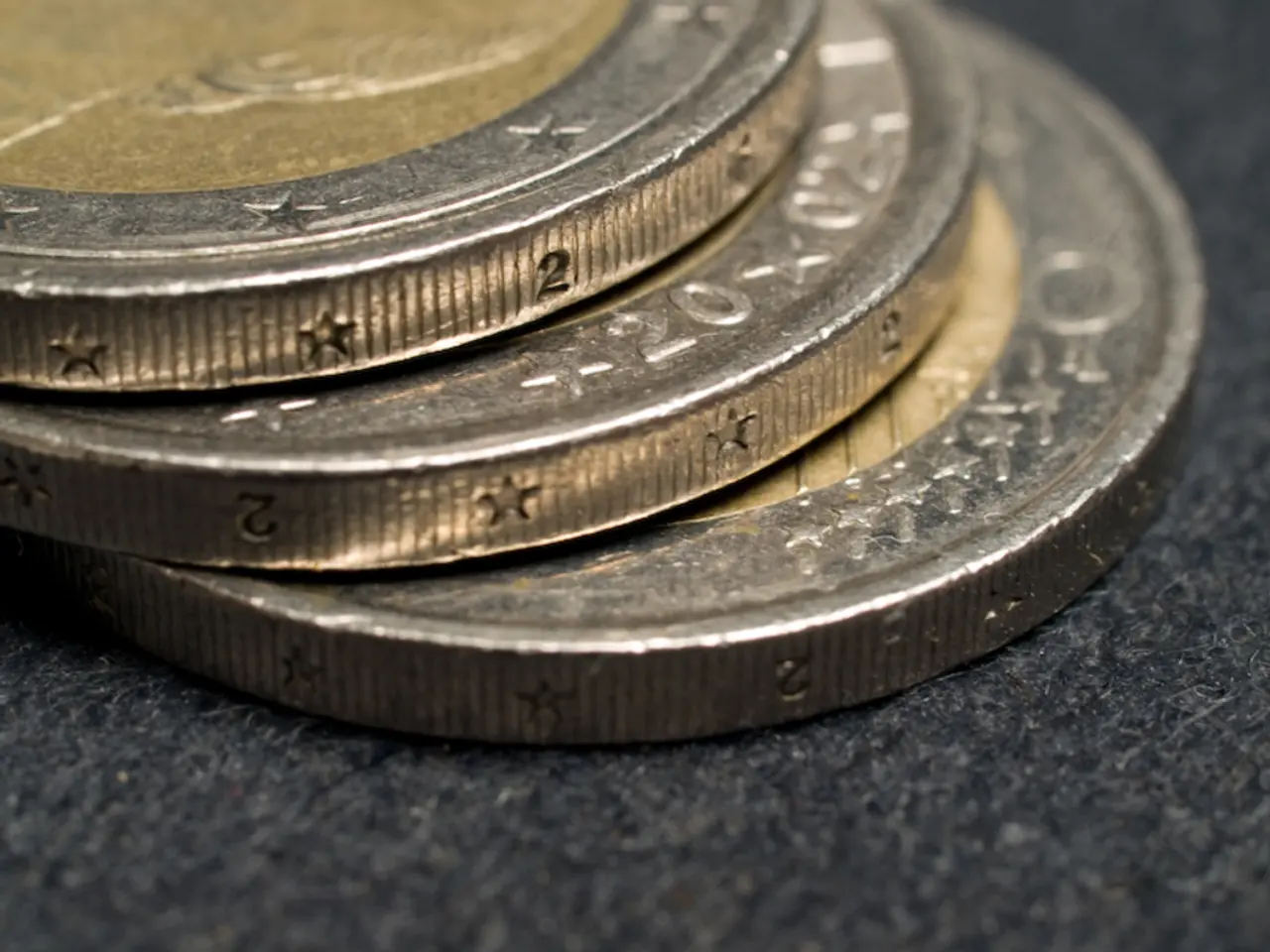Washing Machines Elevated by Cryptocurrency: Bitcoin Mining Boosts Kärcher Clean Park Efficiency
In the heart of Baden-Württemberg lies the city of Münsingen, where the Kärcher Clean Park has made headlines for its innovative approach to energy management. This large car wash, spanning over 900 square meters and boasting five self-service boxes and seven places for interior cleaning, is more than just a place to shine your vehicle.
The Kärcher Clean Park is home to a groundbreaking Bitcoin mining facility, a collaboration between Terahash.energy GmbH and Blue Mining. This facility, powered by transparent photovoltaic panels that generate an impressive 150 kWp of power, plays a crucial role in the park's operations.
On sunny days, the PV system often generates a surplus power, which is efficiently utilized. Some of this excess energy is stored in batteries, while a portion is used for Bitcoin mining. This innovative strategy not only monetizes the surplus power during summer but also generates additional income of 8-15 cents per kWh used, helping to reduce operating costs.
Bitcoin mining at the Kärcher Clean Park serves multiple purposes. It functions as a central heat source, heating wash water to 40°C, keeping wash places ice-free in winter via floor heating, and optionally directing warm air under the roof to clear PV panels of snow. During peak loads or low sunlight, a heat pump serves as a secondary heat source.
Stefan, a media scientist and sinologist, has shown particular interest in the social and ecological aspects of Bitcoin and Bitcoin mining. He is the author of various articles on this topic, including one focusing on the utilization of waste heat for shrimp farming.
The integration of this Bitcoin mining facility into the Kärcher Clean Park demonstrates that companies that rely on heat and produce excess energy can turn to Bitcoin mining to be more efficient and sustainable. Terahash.energy GmbH has even launched a second sustainable Bitcoin mining project in Finland, further cementing their commitment to this innovative approach.
Moreover, the Kärcher Clean Park is a shining example of how decentralized energy generation, decarbonized heating, sustainable resource use, and economic efficiency can be combined in a single, practical application. Rainwater is collected from the roof area in 36,000-liter tanks and used within the park, while a high-efficiency biological water treatment system cleans used wash water, minimizing fresh water demand.
As the conversation around Bitcoin mining's environmental impact continues, the Kärcher Clean Park stands as a testament to the potential for sustainable practices in this field. For those interested in delving deeper into this topic, there are numerous comments available on our forum. Stay tuned for more updates on this innovative project and others like it.
Read also:
- European transportation's sustainability and competitiveness rely on a "green industrial agreement" that serves the interests of both corporations and residents, as discussed in an Editorial from August 2024.
- Indian Oil Corporation's Panipat Refinery secures India's inaugural ISCC CORSIA accreditation for Sustainable Aviation Fuel production
- Porsche Macan Accelerates into Second Generation of Electric Power
- Increasing Trend Downthe Globe: A Growing Number of Individuals Opt for Electric Vehicles Over Long Distances







